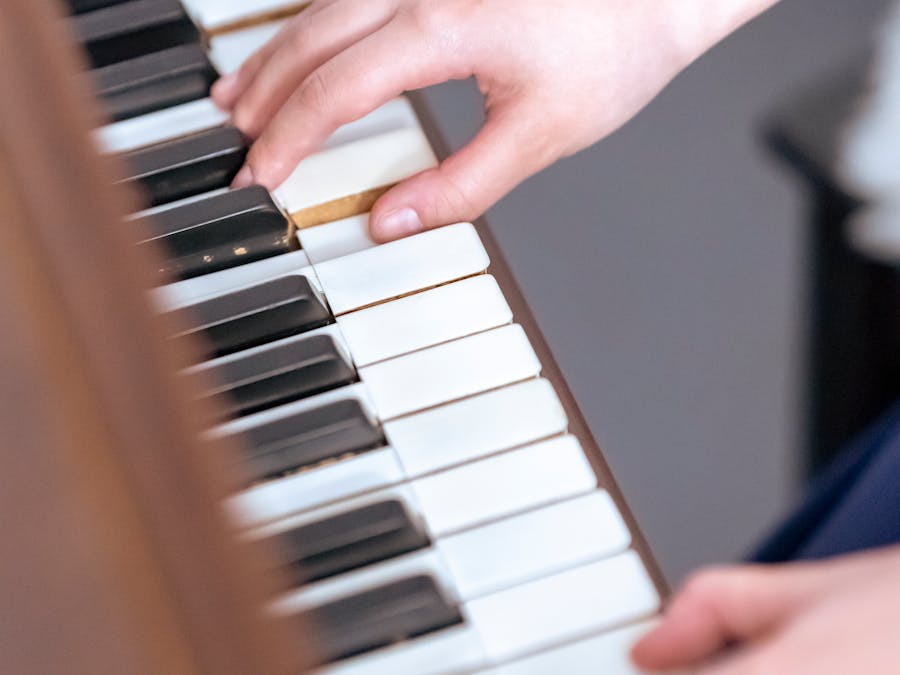 Piano Guidance
Piano Guidance
 Piano Guidance
Piano Guidance

 Photo: Anna Shvets
Photo: Anna Shvets
For a student that is 6-8 years old, well, they can start putting in a little more time and start practicing regularly for 10-15 minutes per day. Their pieces might be getting more complicated, and their teacher might be assigning them some scales. So a little extra time spent at the piano can't hurt!

How rare is perfect pitch, and is it genetic? A commonly cited number is that approximately one in 10,000, or . 01% of people, are thought to have...
Read More »
Carpal tunnel syndrome is the compression of the median nerve as it passes into the hand. The pain in the carpal tunnel is due to excess pressure...
Read More »This is a great question, and one that parents ask all frequently. After all, investing in music lessons for one’s child is a serious endeavor. Aside from the time commitment, there is a real financial expenditure involved in signing up kids for music lessons. I would argue it is an expenditure that is well worth it, but like anything, you get what you put into it. Whether it be the time invested or money, music lessons give back, but the student needs to put the time into the experience to get as much as possible out of it. The great thing about music lessons though, is that you or your child will have one weekly, structured lesson with the same teacher every week at the same time. This is a great launching point in order to set up regular practice habits that will be beneficial for a lifetime to come. But let’s get to the specifics and talk about the amount of time a student should be sitting at the piano, or with their instrument, and churning out some good ol’ practice time. The length of time will mostly depend on the age of the student, but these are just guidelines. If your 5 year old can’t get enough of playing piano, then by all means, let him or her play as much as there is time allotted in the day, without it taking away from other important things, like schoolwork, playtime, eating and sleeping! For a student that is about 4-5 years old, I would recommend at least 5 – 10 minutes per day. And when I say per day, I would suggest at the bare minimum, 4 days per week. The more frequently a student practices the better, but this is a decent starting point. I always challenge my students to get in at least 4 days per week, and then I give them 10 points. More recently though, I’ve decided that 5 days is a better goal to shoot for. Two days off gives students enough of a break without spending too much time forgetting what he or she is learning. For a student that is 6-8 years old, well, they can start putting in a little more time and start practicing regularly for 10-15 minutes per day. Their pieces might be getting more complicated, and their teacher might be assigning them some scales. So a little extra time spent at the piano can’t hurt!

Basic song structure consists of an intro, verse, pre-chorus, chorus and bridge (many times, this is all tied together in an outro, too).
Read More »
Yes, cats can see colours! Although they can't appreciate the full spectrum and the vast variety of shades that we humans can, their world isn't...
Read More »When a student gets to be older than 8, I would say this is a great time to consider making a bigger time commitment and upping the ante to a solid 5-6 days per week. While students this age are starting to get homework, they can really strive to carve out at least 15 – 30 minutes per day, which in the grand scheme of one’s day, is not very long! What is 30 minutes, really? It’s enough time to walk a little over a mile, and just a bit longer than a TV show including commercials. So not a huge commitment, but a real solid amount of time that will begin to reap major rewards with a student’s musical growth. The most important thing to remember is that consistency is key! (No pun intended). There’s not much benefit to practicing for 45 minutes one day and then not practicing again until one’s lesson. This is a common mistake adults make because of our busy lives, but it is a recipe for feeling like one is not able to make progress regularly, and can lead to some major dissatisfaction in one’s progress. So remember, as an adult, make a decision to set aside time at least 4 -5 times per week, to get in a solid practice session, and parents of students, try to encourage your kids to get on a weekly schedule of their own to get those 4 -5 days in per week. And the time spent practicing will vary based on the student’s age. Practice, practice, practice!

The 31 Greatest Pianists of all time Wolfgang Amadeus Mozart (1756-1791, Austria) Ludwig van Beethoven (1770-1827, Germany) Franz Schubert...
Read More »
mezzo-soprano Billie Eilish's voice is roughly around the mezzo-soprano range. Using 'COPYCAT' as an example again, she does go right into the top...
Read More »
The 5 basic guitar chords are C major, A major, G major, E major, and D major.
Read More »
If you want to be a professional classical performer, you're looking at a minimum of 10 to 15 years of concentrated study with a master teacher,...
Read More »